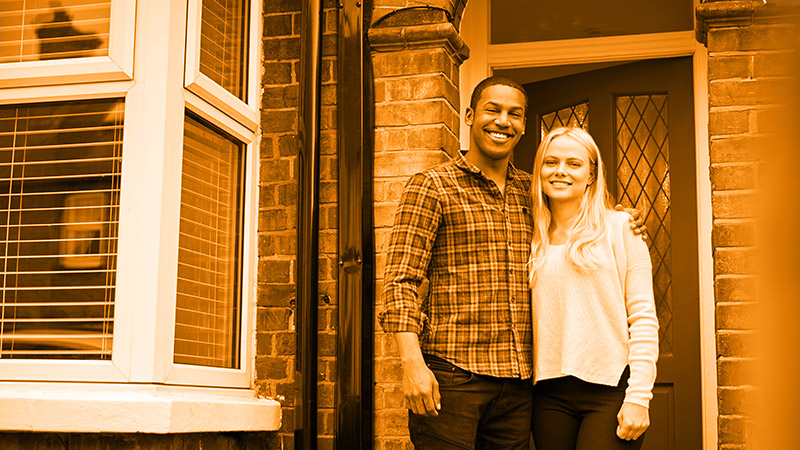The mortgage interest rate attributed to your mortgage product is one of the most important factors to consider when selecting a deal, however, despite mortgage terms being up to 35 years in some cases, the mortgage holder is not bound to the initial rate for the duration.
In this guide, we will be outlining exactly what the initial rate is and the options to find and switch to another mortgage deal.
What is the Initial Rate?
The initial rate is the interest rate set by the lender for the introductory period of a mortgage or other loan.
The rate offered will depend on a number of factors including:
- The Bank of England base rate at the time of the loan application.
- The applicant(s) personal circumstances.
- The applicant(s) credit score and credit history.
- The lender’s selection criteria and any available offers.
- The duration of the loan term.
- For mortgages, the amount of deposit that the applicant can put down will also impact the rate offered.
Often the initial rate on a loan is lower than the Standard Variable Rate, however, it is important to compare all the elements of the loan terms against other products before choosing as usually loans with low initial rates can have hefty products or application fees applicable.
There are various free tools available online to calculate how much can be borrowed, typical monthly repayments, interest rates and how the mortgage term can impact the repayments, however, these should be taken as a guide only as the tools cannot factor in the applicant(s) personal circumstances.
For more tailored advice, it is highly recommended that mortgage advice is sought before making any loan applications in order to find the best deal for the applicant, as well as checking suitability and eligibility before making an application, which if declined, could impact the applicant’s credit score.
Need more help? Check our quick help guides:
- Reasons why a mortgage could be declined on affordability.
- How reliable is a mortgage in principle?
- How do joint mortgages work?
- Can you get a mortgage on a fixed-term contract?
Why do Lenders advertise Initial Rates?
Initial rates are offered by lenders in order to compete with each other within an increasingly crowded market, however, the UK has strict rules of how mortgage products can be promoted, and the applicants vetted.
The Financial Conduct Authority (FCA) regulate mortgage lenders and have rules in place to ensure that the promotions for initial rates are clear, fair and do not mislead customers.
Initial rates are provided to enable the choice to the consumer so that after the initial term, the mortgage holder can either switch to another mortgage product with the same lender or seek a new mortgage deal with another lender.
What Happens When the Initial Rate Comes to an End?
Once the initial rate is over, it is common practice for lenders to switch the loan over to their Standard Variable Rate (SVR) which can prove to be an expensive move for the customer.
The SVR set by the lender is often linked to the Bank of England base rate, however, the SVR can sometimes be over twice the lender’s typical fixed interest rate.
Therefore, it is highly recommended that mortgage holders are aware of when their initial rate is due to come to an end and independent mortgage advice approximately 4 months ahead of this date to ensure that there is plenty of time to discuss the options available and to research the current market conditions.
How to Compare Mortgages
As briefly mentioned, it is wise to browse the market for a new mortgage around 4 months ahead of the end of any current initial rate or fixed period.
One method of comparing the mortgage offers is to review the Annual Percentage Rate of Charge (APRC), which is a calculation of the total cost of the mortgage product including any initial rates and any other fees attributed to the mortgage over the full term of the mortgage.
This rate, shown as a percentage enables a simplified method of comparing multiple mortgage offers, taking into account all of the additional costs.
However if a mortgage holder would like any further support, they can approach a mortgage broker.
Related guides:
- Mortgage 5 times salary.
- Can you get a mortgage on land?
- Refurbishment mortgages.
- Part and part mortgages.
- HMO mortgages.
What is the Current Market Position for Mortgages?
The UK is currently in an extended period of very low base rates set by the Bank of England.
Following the global financial crisis commencing in 2008, the UK interest rates dropped from around 5%, to 0.5% in stages over a six-month period in an attempt to aid the economy during the recession.
There was very little change in the Bank of England’s base rate between 2009 and 2018, following which tiny increases were applied, taking the rate to 0.75%.
However, this minor recovery was soon halted by the worldwide coronavirus pandemic, which has resulted in the Bank of England dropping the base rate to a record low of 0.1%.
Such low Bank of England base rates, set during the pandemic have finally filtered through into mortgage offers, leading to a very competitive mortgage market as banks and lenders, compete to offer very low-cost deals to specific customers.
Mortgage holders looking to remortgage or those potential buyers with large deposits could find the current conditions very favourable indeed as some mortgages are available at under 1%.
However, there are some caveats as some lenders are not accepting those applicants who are on furlough or received self-employed grants during the coronavirus pandemic and therefore it is increasingly important to establish full details and any exceptions before making a loan application.
Initial Term Cost Summary
In this post, we have explored what initial rates are and what happens when these promotional rates end.
We have also briefly covered the importance of comparing mortgage options using the Annual Percentage Rate of Charge in order to establish the entire costs of a mortgage.
We also took a look at the current mortgage market conditions and the impact that the pandemic has had, as well as implications for those who required financial support during the past eighteen months.
Should you require any further advice in relation to your remortgage options, please do get in touch with our friendly and knowledgeable team.
Call us today on 01925 906 210 or feel free to contact us. One of our advisors will be happy to talk through all of your options with you.
















